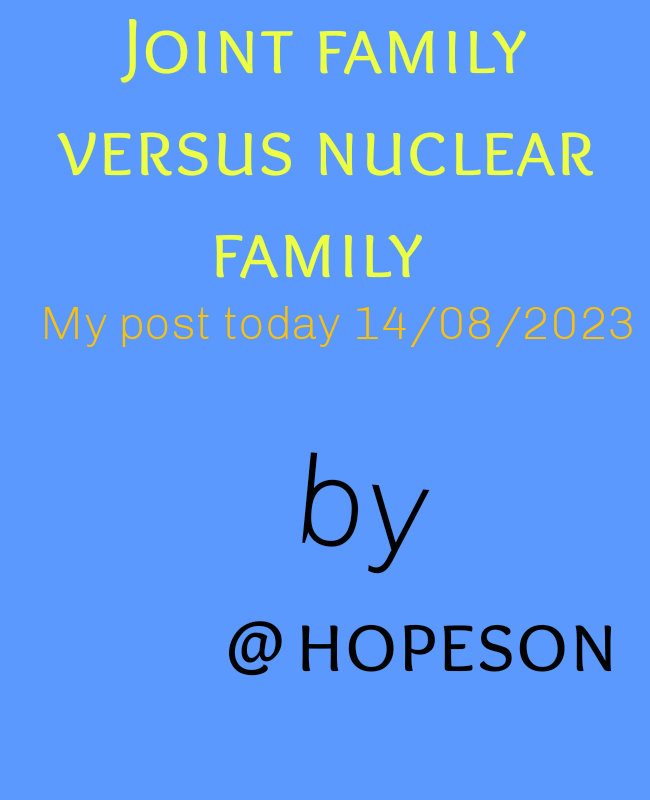
Joint Family and Nuclear Family are two different types of family structures. Let's explore their characteristics and differences:
Joint Family:
- A joint family, also known as an extended family, consists of several generations living together under one roof.
- It typically includes grandparents, parents, children, and sometimes even aunts, uncles, and cousins.
- Joint families emphasize strong family ties, mutual support, and collective decision-making.
- Financial resources are often pooled together, and expenses and responsibilities are shared among family members.
- Joint families offer a sense of security, emotional support, and a wider network of relationships.
- However, conflicts and differences in opinions between family members can arise due to the close proximity and interdependence.
Nuclear Family:
- A nuclear family consists of parents and their children, living independently of their extended family members.
- It usually includes a husband, wife, and their unmarried children.
- Nuclear families prioritize individualism, personal privacy, and autonomy.
- Economic resources, responsibilities, and decision-making are typically managed by the parents.
- Nuclear families provide more privacy, flexibility, and freedom to make independent choices.
- However, they may lack the social support and collective decision-making found in joint families.
Differences:
- Structure: Joint families are multi-generational and include extended family members, while nuclear families consist of parents and their children only.
- Relationships: Joint families foster stronger interdependence and closer relationships among family members, while nuclear families focus more on immediate family relationships.
- Decision-making: In joint families, decisions are often made collectively, with input from multiple family members. In nuclear families, decisions are primarily made by the parents.
- Support System: Joint families provide a broader support system with more people to rely on, whereas nuclear families rely on a smaller network of immediate family members.
- Independence: Nuclear families offer more individual freedom and independence, while joint families require more coordination and compromise.
Both joint families and nuclear families have their own advantages and disadvantages. The choice between them depends on cultural, social, economic, and personal factors, as well as individual preferences and circumstances.